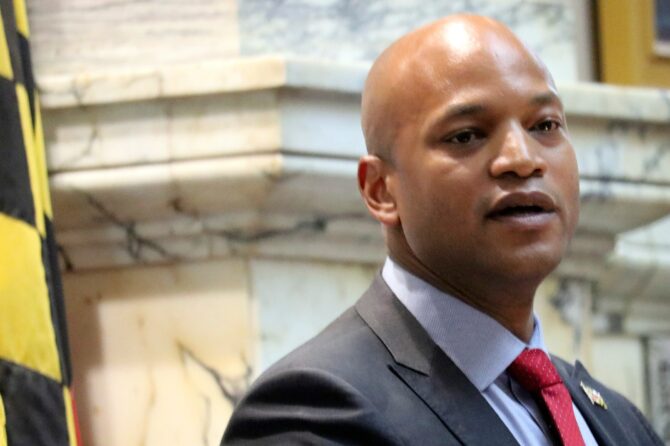CAPITAL NEWS SERVICE: Maureen Daly of Long Island’s North Shore Leader broke the story of George Santos’ deception months prior to the 2022 election.
But people didn’t pay attention, and Santos went on to secure victory in New York’s 3rd Congressional District. He’s since faced scrutiny from local and national outlets alike for embellishing his background.
Stories like this are what inspired newly elected state Del. Joe Vogel (D-Montgomery) to sponsor a bill sustaining local journalism in the Maryland General Assembly.
House Bill 540 would allow small and medium-sized businesses to receive a tax credit of up to $3,000 for advertising in local news outlets such as newspapers, radio and television.
“Sustaining local journalism is essential to protecting our democracy,” Vogel told Capital News Service.
As technology advances, some businesses have shifted to relying on media giants like Facebook and Google for advertisements.
This means fewer reliable advertising dollars for smaller publications.
“That’s less employees that local newspapers can hire, less journalists covering the State House, less journalists being able to cover our city halls, and that has serious consequences for our democracy,” Vogel told Capital News Service.
Vogel described the bill as beneficial for both businesses and the media.
The legislation would enable small businesses to gain exposure and it would also generate more revenue for the local news sources as both recover from the pandemic.
“This bill really does serve the marketplace, but it also helps local newsrooms with their business models and keeping revenues up, which helps newsrooms thrive and survive longer,” Maryland-Delaware-D.C. Press Association Executive Director Rebecca Snyder told Capital News Service.
An average of two U.S. newspapers close each week, according to The Hill. Newsroom employment in the U.S. has dropped by nearly a quarter since 2008, according to a Pew Research Center analysis of a 2021 report by the U.S. Bureau of Labor Statistics.
Only 30% of newspapers had a statehouse reporter by 2014, according to the Pew Research Center.
“Local journalists are holding us accountable, and they’re holding leaders across the state accountable as well,” Vogel said during the bill’s hearing in the Ways and Means Committee on Thursday.
Along with the number of reporters in newsrooms decreasing over the past few years, some publications have reduced the number of days when they put out a print newspaper, Snyder told Capital News Service.
With less local news, people are less aware of what happens in their surrounding areas.
“It is super important to fund journalism because it directly affects the civic engagement of communities,” Snyder said..
The bill would encourage entrepreneurship and development for small businesses in the state, according to testimony at the hearing from Sarah Price of the Maryland Retailers Association.
Price said the first five years of business operations for a company can determine if it stays afloat within its community.
“Anything that we can do to offset the costs of advertising with local news sources and building a strong customer base within that community could make a really big difference for entrepreneurs in Maryland,” Price said during the bill’s hearing.
Experts predict that the U.S. will lose a third of its newspapers by 2025, according to Vogel.
He said that if lawmakers wait to address the issue, there may not be any more local news outlets to uphold.
“We have an opportunity in this window of time to support the existing local news sources,” Vogel said, “(and) allow them to continue doing the critical work that they do for our democracy.”
Photo: Maryland lawmakers are considering a tax credit that would be available to small businesses who advertise through local news media. Stock.adobe.com photo by Aleksey 159.










